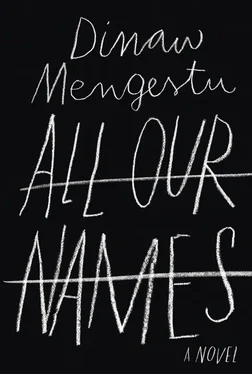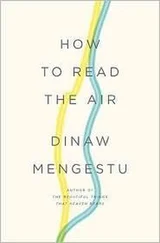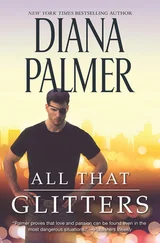“I’m going to be late,” I said.
Though she wasn’t standing in my way, she stepped slightly to the side so I would know I was free to go. The last thing she said to me before I left was “This isn’t like you, Helen.”
“It’s okay,” I told her. “I know.”
We barely spoke for the next few weeks, and when we did, it was never about where I went or whom I spent my time with. She missed me; she let me know that in her own quiet way. She left a new dress on my bed, a necklace of hers that I had loved as a child, all while I was away from home. When we saw each other in the mornings, she told me about the water stains on the bathroom ceiling, the lunch she had had last week, and I said nothing about Isaac.
If it had only been Isaac and me, I’d like to think we could have gone on like that until the day he was supposed to leave; and it’s possible, if we had done so, that might have been enough so we could have tried to settle into a life together, maybe in one of those hippie enclaves in San Francisco, or in the chaos of a big city where no one’s interest in us ran that deep. Isaac and I spent New Year’s Eve drinking white wine in our motel room off the highway, and an entire Valentine Sunday in that room with a box of grocery-store heart-shaped chocolates and red and pink carnations. In April, it started raining hard a few days after Easter and didn’t stop until almost two weeks later, by which point half a dozen towns along the river were covered in more than a foot of water. It was the type of natural disaster I would normally have wanted nothing to do with, given the scale and seemingly endless complications that came with it — from the vanished homes, to the devastated crops and factories forced to close — but when David asked if anyone wanted to go down and volunteer with another relief agency, I was the first to raise my hand. I thought I had lost the heart to take on that type of work, but I hadn’t. I had simply let the muscles go slack. What I didn’t know until then was that loving someone and feeling loved in return was the best exercise for the heart, the strength training needed to do more than simply make it through life. When I told Isaac I was going to work in the flooded towns that we had both seen on the news each night, he asked if the work wouldn’t be too difficult. He imagined me carrying sandbags along a levee. “Of course it will be hard,” I told him. I flexed both my arms. “Feel that,” I said. He squeezed my biceps. “You’re the strongest woman in the world,” he said, which was exactly how I felt when I was with him.
I spent most of that April touring water-soaked homes, one house and family at a time. There was a stillness to the destruction that I carried home at the end of each day — a chair turned upside down floating in a kitchen, or a woman standing with her hands on her hips, knee-deep in water, staring at the ruined remains of what had been her children’s bedroom. The rain and sandbagging had stopped days earlier, but the wreck remained, and it was in that wreckage that I found my place. Overnight, I became an agent of recovery. I waded in the mornings through drenched closets and chests of drawers, searching for important documents and mementos that could be salvaged, mainly for families who still didn’t have the heart to do so on their own. In the afternoons and evenings, I pored through stacks of government and insurance forms. I itemized lives, made lists and charts of things lost, from cars, furniture, clothes, and homes to birth certificates, marriage licenses, deeds, wills, and mortgages. I loved what I did. I was hugged and cried on. I had the strength to endure others’ misery, to bear some of it on my own so they wouldn’t have to. Every time people told me, “I don’t know what to do next,” I held their hands and told them that was fine, they didn’t have to, because I did. I made the drive back to Isaac’s apartment three, sometimes four nights a week, on the days when I felt I needed him most. We took hour-long baths together.
“I’m starting to feel like a duck,” I told him. “I’m soaking wet all day, and then I come here to sit in a bath.”
When he opened the door in the evenings, the first thing I said to him was “Quack.” Most evenings I was too tired to talk for long, so he read to me in bed until I fell asleep — never from the same book twice, since most books he finished in a single day. “How do you choose what you’re going to read next?” I asked him.
“Simple,” he said. “I walk down an aisle, close my eyes, and run my hand along the spines. Whatever book is there when I stop is what I read next.”
I believed him at first, but then I saw the university course catalogue lying on the floor next to his bed. He had circled dozens of courses in different departments and was slowly making his way through the partial reading list that was listed next to each class. That was my Isaac at his best.
It was into that private world of ours that Henry stepped in. May was mercifully dry: eighteen straight days of brilliant sunshine, never too warm or humid. I went back to my office at the start of the month, when the bulldozers and construction crews arrived, convinced that, other than the five people who had drowned, nothing had been lost in all that water that could not be replaced. I had done a decent job until then of not counting the months that I had left with Isaac, but the change in season and weather and the return to office life had been so abrupt that all I could see was the end of summer. I skipped over June and July and went straight to the second week in August, when Isaac’s visa was set to expire.
“We’re running out of time,” I told him.
“Let’s try not to think about that,” he said.
“And how do we do that? You’re going to be gone soon, and I still don’t know what I’m going to be left with.” Which I suppose was my way of saying I was done with mystery; its charm had worn thin. What I wanted was a real person to hold on to and eventually miss.
He put his arm around me. “I’m not gone yet,” he said, and with that I relented. A week later, Isaac called me at work to tell me he wanted us to have dinner with Henry, the only friend he had, other than me, in America. Of course, he was far more generous in describing him. His exact words were, “He’s the closest thing I have to a past in this country.”
Isaac claimed that he was the one who invited Henry to join us for dinner, but I’m certain that wasn’t true. Henry was never Isaac’s guest; if anything, Isaac was always his. The barrel-chested, balding, middle-aged man whose shadow I first saw from my car was the same person who had helped bring Isaac to America, the old friend of David’s who had secured his visa and had him placed in our care. No, I don’t believe Isaac invited Henry to dinner so he could meet me. He invited Henry to dinner because Henry wanted to know who the woman lurking outside of the apartment was.
Isaac played it well. For all the precautions we had set in place, from never leaving my car parked overnight in front of his apartment to having fixed times during the day when it was safe for him to call my office, I always wanted more from him. All he had ever told me about his family was that his father was ill, that it had been years since he had last seen them, and that he had five siblings that he knew of, though that didn’t mean there weren’t more by now. “We’re good at having babies,” he said. “Better than the Chinese. If we lose one, we have two more to make up for it. If we ever fought a big war, we’d double our population.” He still wouldn’t give the names of his family, and he had claimed he had no pictures to share. What he had instead was Henry.
“Are we supposed to be just friends?” I asked him. “I don’t want to pretend in front of others.”
Читать дальше












